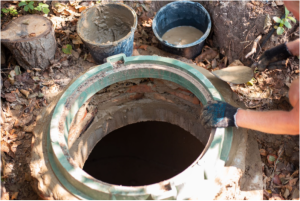Septic tanks are a vital part of your septic system. They remove solid and liquid waste from the septic tank, which prevents it from backing up into the house or seeping into groundwater. Maintaining your septic drain tank is crucial for keeping your septic system in good condition and preventing expensive repairs in the future. In this blog post, we’ll discuss 3 tips that will help you maintain your septic drain tank so it lasts longer!

Improve the efficiency of your property’s water usage
If you continually overfill your tank, it will become weakened, damaged, or obstructed. Your septic tank’s burden may be reduced and hence its lifespan is extended by making your appliances more water-efficient. Fixing a leaking toilet, only using your washing machine or dishwasher for a full load, or installing energy-efficient toilets or showerheads are just a few of the ways you can make your house more water-efficient.
Find out what you can and cannot put down your drains
Some items should never be flushed down the drain because the bacteria in your septic tank maintain a delicate balance, and the introduction of certain elements can either disturb the pH balance and prevent the bacteria from breaking down waste, or cause clogs.
The following objects should not be disposed of down your sinks or toilets:
- Cigarettes with filters inside
- Feminine sanitary care items
- Paper towels
- Paints or chemicals
- Oils, fats, and grease
- Diapers are disposable.
- Wet rags
- Coffee grounds, eggshells, and nutshells are all examples of waste.
Inspections should be performed on a regular basis
By examining the state of your septic tank on a regular basis, you will be more likely to detect growing problems early on, making them easier and less expensive to correct. If you never inspect the condition of your tank, you may be in for an unpleasant surprise if it suddenly stops operating one day. Examine the tank, any visible components, the drain field, and any ground surrounding the tank for evidence of damage or leakage. By checking your tank, you may also determine how full it is, allowing you to schedule an appointment to have the septic tank emptied in advance. Don’t worry, your septic tank just has to be examined every few months.
Keep your drain field secure
Your drain field is just as essential as the tank itself, and damage here can have a detrimental impact on how effectively your septic tank can handle waste – you may even discover that your tank becomes backlogged and overflows because it lacks a proper outlet for the waste. You should never park or drive on your drain field, and you should avoid planting plants or trees in this area since root penetration might disrupt wastewater flow.